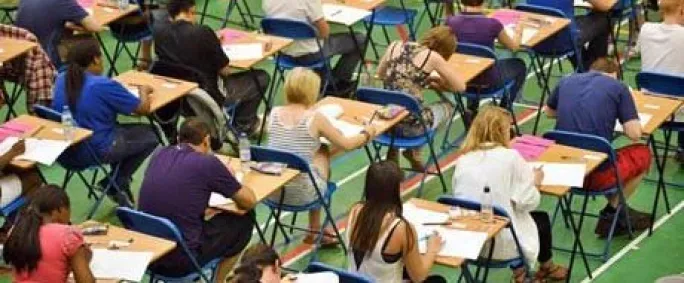Independent schools abandon GCSEs for international alternative
Independent schools’ desertion of the GCSE in favour of its international counterpart is continuing to snowball, figures released today reveal.
Nearly two-fifths of Year 11 exam entries from England’s major private schools are now for IGCSEs rather than the GCSEs, according to the Independent Schools Council (ISC).
The organisation, with members that include the elite schools of Eton, Wellington and Harrow, has released statistics for 552 of its secondaries, showing that their total IGCSE entries increased from 129,288 to 152,170 this year.
That represents 38.7 per cent of the exams that the schools’ 16-year-olds took. The proportion has risen significantly every year since 2007, when it was a mere 3.9 per cent.
Barnaby Lenon, ISC chair, said the phenomenon in the independent sector had begun with maths and then science, but had now spread to English literature and beyond, with the qualifications being used in humanities and languages subjects.
“This increase represents a gradual diffusion from maths into other subjects,” Mr Lenon, a former head of Harrow School, said. “Demand for the IGCSE is growing because it offers less coursework, better preparation for A-level and there is growing confidence in the qualification.”
He added that this year’s increase was also due to new schools trying the IGCSE. The ISC said all 552 schools still had pupils taking at least one domestic GCSE, but 438 of them are using the IGCSE in some subjects and the trend is only going in one direction.
At Cheltenham College, pupils study IGCSEs in maths, English language, English literature, science, history, geography and modern languages because the £33,714-a-year school believes they are “more academically rigorous”.
Deputy head Duncan Byrne said: “IGCSE, particularly in mathematics and the sciences, contains content that is more challenging, and that prepares students better for further study.”
The popularity of IGCSE English may have been boosted because it can still include a speaking and listening component that can contribute to the overall grade, which was dropped from the domestic version this year.
The GCSE received more bad publicity yesterday as results of what was billed as the “first ever direct comparison of GCSEs with international GCSEs” were published.
The independent Guildford High School, in Surrey, found that its brightest pupils did better in French, German and Spanish at IGCSE and claimed that this was because marking for domestic GCSEs penalised their responses to extended-answer questions.
Jon Coles, chief executive of United Learning, which runs the school, said the findings raised issues about the expectation of more extended-answer questions in the tougher new domestic GCSEs now being developed.
“That’s only going to work if something can be done about the quality of the marking,” Mr Coles, a former director-general for standards at the Department for Education (DfE), told The Times newspaper.
But there is a threat to the IGCSE on the horizon. Last month the DfE announced that the international qualification would not, in its current form, count towards official school performance tables in any subjects where the new reformed GCSEs have been sat.
The ruling will start to kick in from 2017 - the first year that the revamped GCSEs in English language, English literature and maths are taken.
But Mr Lenon noted that independent schools had been prepared to sacrifice league-table positions when they first started using the IGCSE and would probably be willing to do so again.
“This is of concern to us,” he said. “Many of our best-known, very good schools are likely to come bottom of the performance tables once again, which of course makes a bit of a nonsense of the tables. But it is not likely to put off most of our schools [from the IGCSE].”
He also thought the jury was still out on how independent schools would receive new domestic GCSEs, which will keep non-exam assessment to a minimum.
Ironically, the new more demanding qualifications are the brainchild of former education secretary Michael Gove, who made great play of ensuring that all schools could use IGCSEs when he came to power in 2010.
The international GCSEs could still end up counting in the performance if exam boards decide to change them to bring them in line with the reformed domestic versions.
Related stories:
IGCSEs to be scrapped from league tables in exam overhaul - July 2014
Schools turn to IGCSEs because they are “way easier” - August 2013
Early entries, multiple entries and IGCSEs all rocket. But why? - August 2013
Keep reading for just £1 per month
You've reached your limit of free articles this month. Subscribe for £1 per month for three months and get:
- Unlimited access to all Tes magazine content
- Exclusive subscriber-only stories
- Award-winning email newsletters




